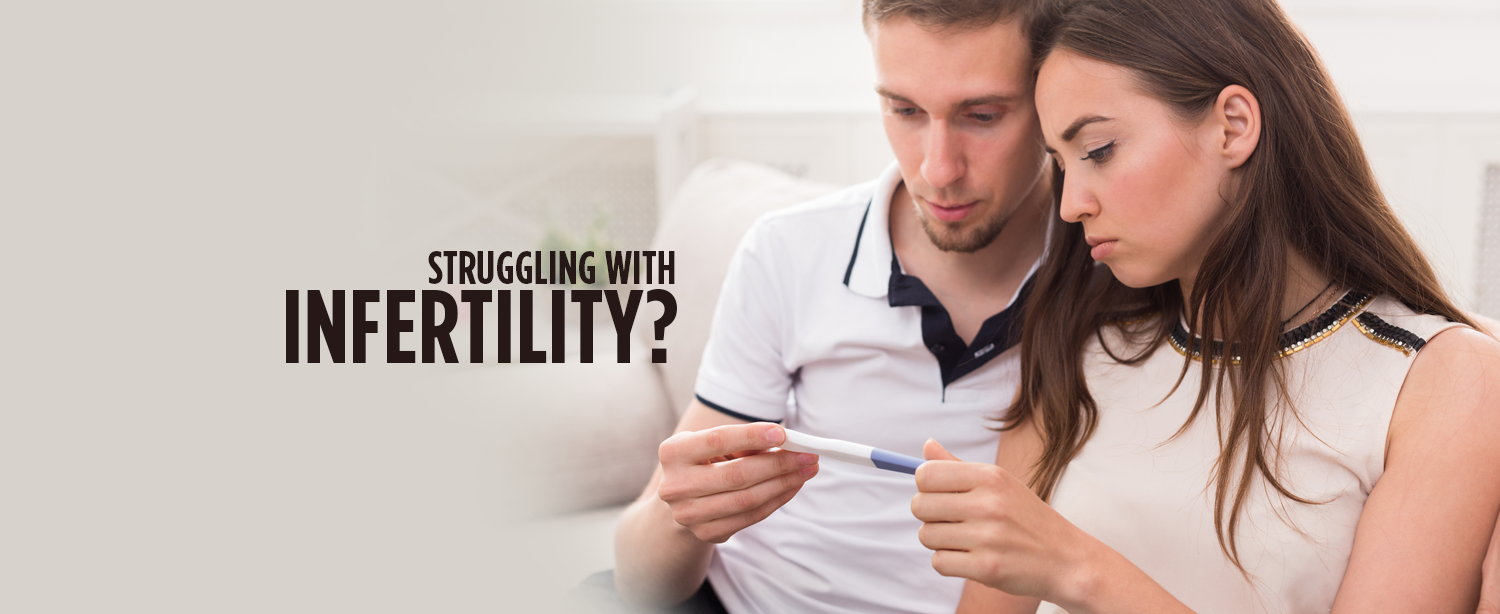What is Infertility?
Infertility can take a toll on your life emotionally and may hamper your relationship with your spouse too. Most people will have a strong desire to conceive a child at some point during their lifetime. Understand what defines normal fertility, this helps you know when to seek medical help. Approximately 85 % of couples will achieve pregnancy within one year of trying. Infertility is defined when couples are unable to conceive a child, even though they’ve had frequent, unprotected sexual intercourse for a year or longer. Up to 15 per cent of couples are infertile. In over a third of these couples, male infertility plays a role.
Infertility can be caused due to factors affecting the female or the male partner.
Female Infertility
Here are a few common reasons in women that lead to Infertility:
1) Advancing maternal age: Female age-related infertility is the most common cause of infertility today. For unknown reasons, as women age, egg numbers decrease at a rapid rate. And as ageing occurs, egg quality, or the likelihood of an egg being genetically normal, decreases as well.
2) Ovulation disorders: Normal and regular ovulation, or release of a mature egg, is essential for women to conceive naturally. There are many disorders that may impact the ability for a woman to ovulate normally.
3) Tubal occlusion (blockage): A history of sexually transmitted infections including chlamydia, gonorrhea, or pelvic inflammatory disease can predispose a woman to have blocked fallopian tubes. Tubal occlusion is a cause of infertility because an ovulated egg is unable to be fertilized by sperm or to reach the endometrial cavity.
4) Uterine fibroids: Fibroids are very common (approximately 40% of women may have them) and the mere presence alone does not necessarily cause infertility. The size and position of the fibroid determine its effects on your pregnancy.
5) Endometrial polyps: Endometrial polyps are finger-like growths in the uterine cavity arising from the lining of the uterus, called the endometrium. They can decrease fertility by up to 50% according to some studies.
6) Endometriosis: Endometriosis is a condition whereby cells very similar to the ones lining the uterine cavity, or endometrium, are found outside the uterine cavity. It is found in approximately 10-50% of reproductive-aged women and can be associated with infertility as well as pain during intercourse and/or menstrual periods.
Quick Facts About Infertility
- Infertility is a disease of the reproductive system that impairs the body’s ability to perform the basic function of reproduction.
- Infertility affects men and women equally.
- Twenty-five per cent of infertile couples have more than one factor that contributes to their infertility.
- In approximately 40 per cent of infertile couples, the male partner is either the sole cause or a contributing cause of infertility.
- Irregular or abnormal ovulation accounts for approximately 25 per cent of all female infertility problems.
- Most infertility cases — 85% to 90% — are treated with conventional medical therapies such as medication or surgery.
- It is possible for women with body weight disorders to reverse their infertility by attaining and maintaining a healthy weight.
- Men and Women who smoke have decreased fertility.
- The risk of miscarriage is higher for pregnant women who smoke.
Male Infertility:
Male infertility is due to erectile dysfunction, low sperm production, abnormal sperm function or blockages that prevent the delivery of sperm. Illnesses, injuries, hormonal imbalances, chronic health problems, lifestyle choices and other factors can play a role in causing male infertility. The semen analysis is one of the main tests to evaluate the male partner.
Factors that determine male fertility:
- You must produce healthy sperms and sufficient semen volume.
- There needs to be higher sperm concentration to increase chances of conception.
- Sperm must have the motility to be able to move for conception to happen.
- The sperm morphology or shape determines its ability to fertilize the egg.
Risk factors linked to male infertility include:
- Smoking tobacco.
- Using alcohol.
- Using certain illicit drugs.
- Being overweight.
- Being severely depressed or stressed.
- Having certain past or present infections.
- Being exposed to toxins.
- Overheating the testicles.
- Having experienced trauma to the testicles.
- Having a prior vasectomy or major abdominal or pelvic surgery.
- Having a history of undescended testicles.
- Being born with a fertility disorder or having a blood relative with a fertility disorder.
- Certain medications.
Fertility treatments for females:
- Fertility drugs and hormones to help the woman ovulate or restore levels of hormones.
- Surgery to remove tissue that is blocking fertility (such as endometriosis) or to open blocked fallopian tubes.
Here are a few assisted reproductive technology or ART treatments used for male as well as female infertility problems:
- IUI (intrauterine insemination): Sperm is collected and the placed directly inside the woman’s uterus while she is ovulating.
- IVF (in vitro fertilization): The sperm and egg are collected and brought together in a lab. The fertilized egg grows for 3 to 5 days. Then the embryo is placed in the woman’s uterus.
- GIFT (gamete intrafallopian transfer) and ZIFT (zygote intrafallopian transfer): The sperm and egg are collected, brought together in a lab, and quickly placed in a fallopian tube. With GIFT, the sperm and eggs are placed into the fallopian tube. With ZIFT, a fertilized egg is placed into the tube at 24 hours.
Are you getting sleepless nights due to your infertility issues?
Are you waiting for your parenting journey to start?
Consult our Reproductive Endocrinologists for in-depth knowledge of your medical condition and how best it can be overcome. Our team offers the latest fertility treatments along with counselling support. Please find below link for further details:


